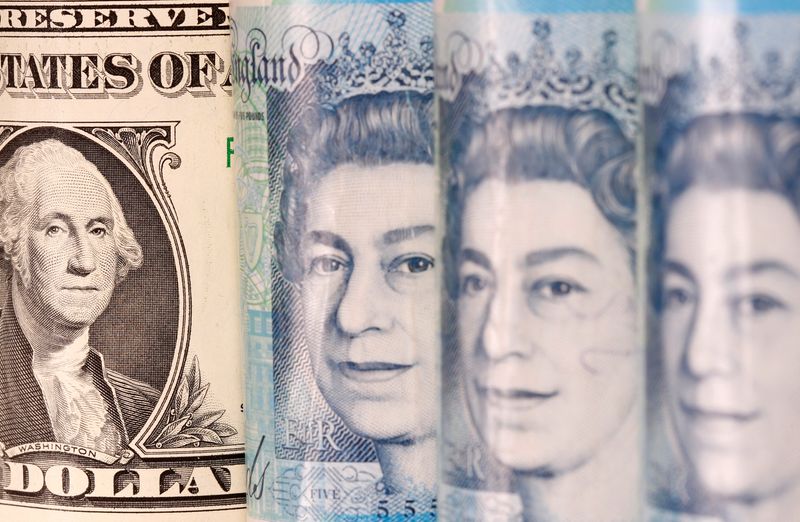
By Amanda Cooper
LONDON (Reuters) – The pound headed for its biggest weekly loss since January on Friday, under pressure from weak UK economic data and a surging dollar that is getting a lift from investors’ conviction that Donald Trump’s policies will drive up U.S. growth and inflation.
Britain’s economy contracted unexpectedly in September and growth slowed to a crawl over the third quarter, data showed on Friday.
Sterling was unchanged on the day at $1.26795, around its lowest since May and set for a 2% decline this week, its largest weekly loss since January.
President-elect Trump has vowed to levy hefty tariffs on the imports of some of the United States’ biggest trading partners, while at the same time cutting taxes at home and loosening a raft of regulations on anything from energy to cryptocurrencies.
The likely impact is a rise in U.S. inflation and a possible boost to domestic growth, which has sent the dollar to its highest in around a year and eroded the pound’s erstwhile strength against the U.S. currency.
Sterling has turned negative on the year against the dollar for the first time since July, down 0.4%. For most of 2024, it’s been the best-performing major currency, on the grounds that UK interest rates will take longer to fall meaningfully than U.S. ones.
With the Federal Reserve looking increasingly likely to cut rates only gradually, given the outlook for a high-inflation, high-growth macro backdrop, the dollar could have more yield appeal than the pound.

Money markets show traders think the Bank of England is expected to cut UK rates to around 2% by next December, compared with a projected 3.84% from the Fed.
“We believe that if UK economic data continues to disappoint, the BoE may become more focused on reviving growth,” BBVA (BME:BBVA) strategist Roberto Cobo said.
This post is originally published on INVESTING.


